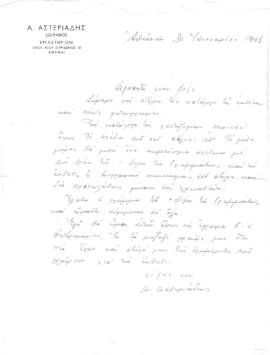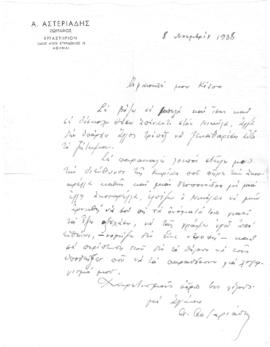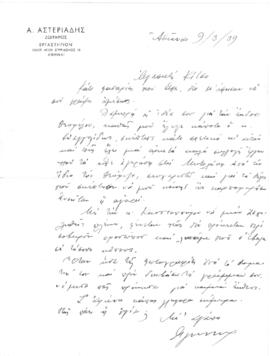Identity area
Reference code
Title
Date(s)
- 1930 - 1988 (Creation)
Level of description
Subfonds
Extent and medium
Context area
Name of creator
Biographical history
Kitsos Makris was born in Larissa in 1917 and lived in Volos from 1926 till he died, in 1988.
While in Volos, he studied the work of painter Theofilos and in 1939 published his first book under the title "Theofilos, the painter", which was the first Greek written work on this subject. With the precious help of his wife Kyveli, a photographer, he recorded all the monuments of folk art in Mt. Pelion.
During the German occupation he took part in the National Resistance. He was elected three times as a municipal councillor in the city of Volos and he was appointed Manager of the Thessalian Branch of EOMMEX (National Organisation of Greek Handicrafts).
He travelled all over Greece and abroad, looking for the different effects and developments of Greek Folk Art. He specialised more on folk paintings, and went further than that with his studies on their economic and political background.
He gave many lectures and teaching classes and organised folk art exhibitions in Greece and abroad. He wrote articles published in newspapers and magazines and he was honoured by the Academy of Athens for his work. He also got many distinctions, while in 1987 he was awarded the degree of Honorary Doctor of Philosophy by the Aristotle University of Thessaloniki. He has published 47 books and studies, many of which were translated in English, French, German and Serbian.









